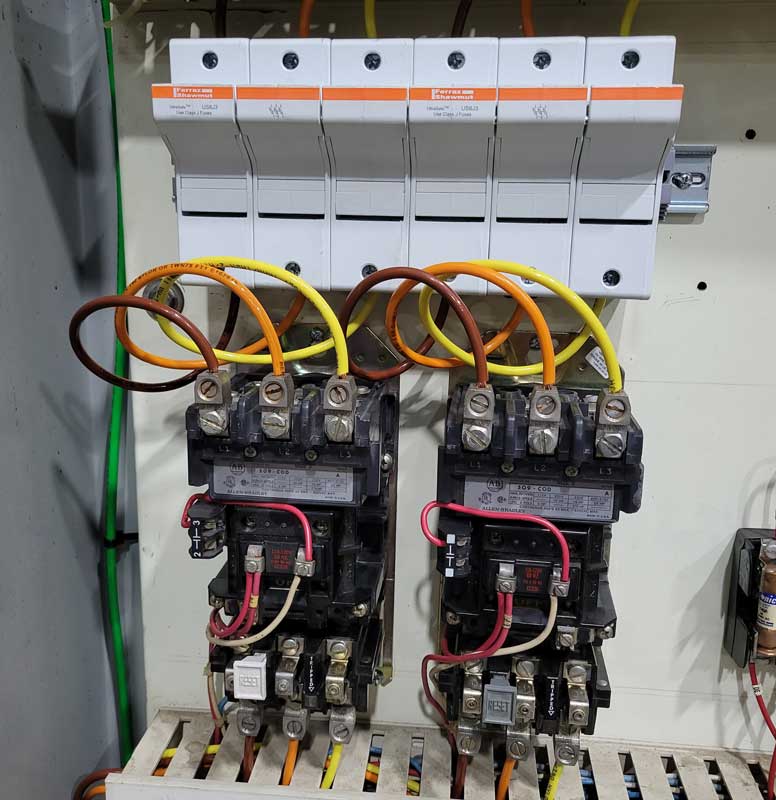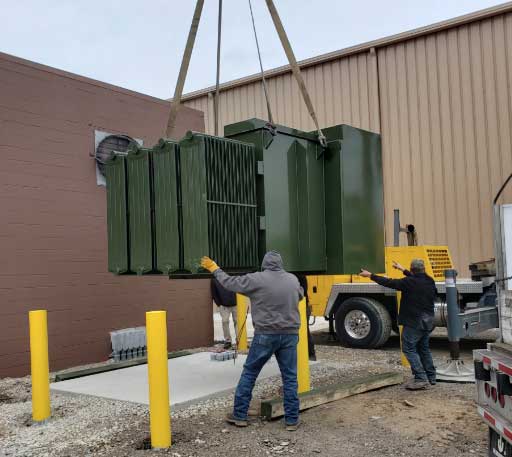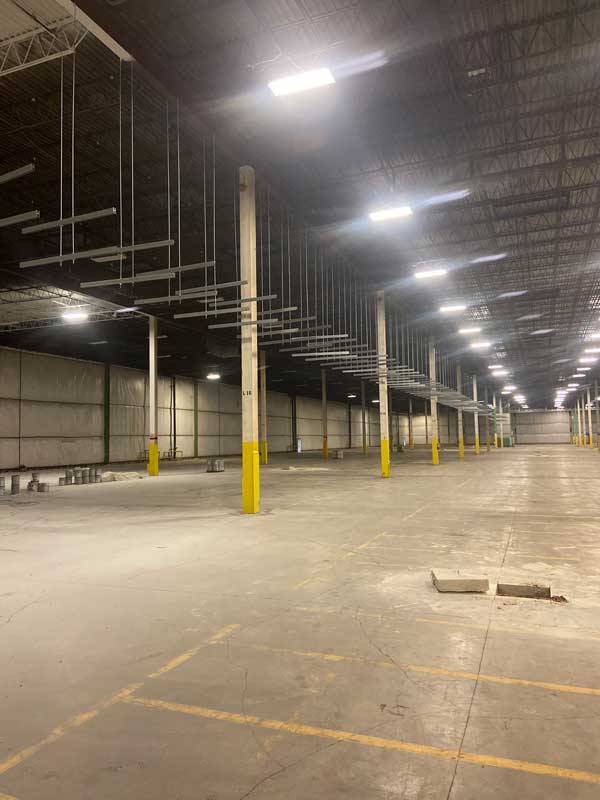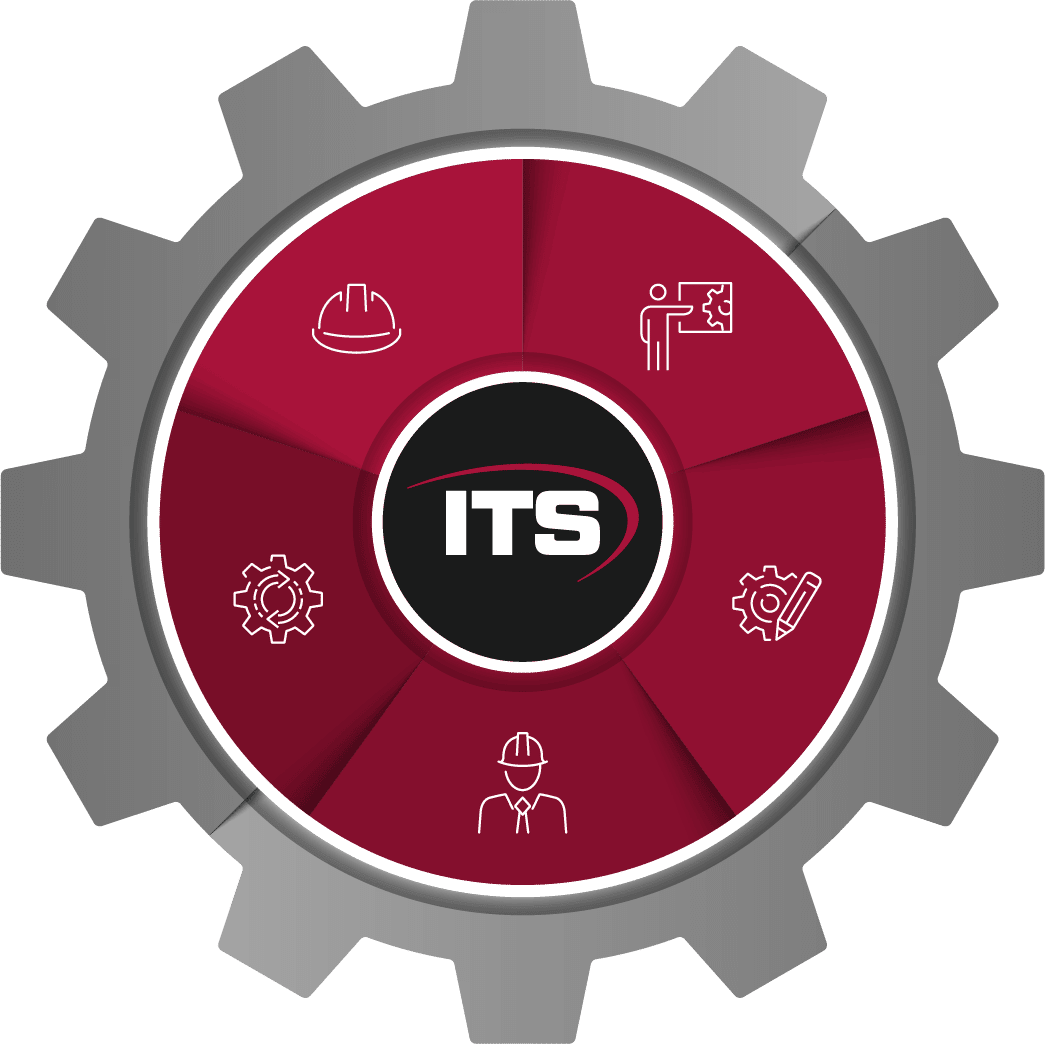Electrical Engineering
Electrical Engineering in Industrial and Commercial Settings
Electrical engineering works specifically within the technology of electricity, with a focus on design, implementation and maintenance of electrical systems. Electrical engineering plays a vital role in industrial and commercial settings and ultimately influences nearly every aspect of modern-day production.
Contact Us
Key Components of ITS’ Electrical Engineering Services
Industrial Technology Services has built a solid reputation for delivering high quality, dependable electrical engineering solutions based on the specific needs of our customers. With exceptional depth, knowledge and experience, our electrical engineering department brings an innovation and problem solving perspective to a multi-faceted offering. Core responsibilities include:
System Design & Planning
From high level design and analysis to detailed schematic design and component selection, ITS works with customers to design and plan an efficient, tailor-made electrical solution.
Load Calculations & Power Distribution
An electrical system must meet a building’s load requirements. Essential factors to include in the design and analysis of an electrical system are power requirements analysis, system capacity, distribution system layout, proper voltage levels, balances and quality, steady state and transient loads, protection and control schemes, and system reliability and redundancy.
Energy Efficiency Optimization
ITS’ electrical engineering professionals understand the importance of implementing energy-efficient systems and controls to reduce costs and environmental impact. This can include the implementation of renewable energy sources such as solar and wind power.
The Importance of Compliance and Standards
Compliance and standards in electrical engineering help ensure that all electrical systems meet current standards and regulations to guarantee the safety of occupants and avoid potential hazards. ITS adheres to local building codes, National Electric Code (NEC), National Electric Safety Code (NESC) and other applicable codes, standards and industry-specific regulations.
Equally important are Electrical Safety Standards and Codes—the backbone of ensuring safe electrical installations, operations and maintenance practices. The NEC is one of the most widely adopted electrical codes globally, providing comprehensive guidelines for safe electrical design, installation and inspection in industrial and commercial settings.
Electrical Engineering on the Forefront of Advanced Technologies and Innovations
In today’s rapidly evolving world, the need for efficient and sustainable electrical systems has never been more vital. As a result, the arrival of advanced technologies and innovations has changed the way we generate and distribute power. At the heart of this revolution is electrical engineering, which is playing a crucial role in the development and implementation of several emerging technologies and services, including:
Smart Grids Integration
This enables two-way communication between utility companies and consumers, creating real time monitoring, control and optimization of electricity distribution networks for improved efficiency and reliability.
Building Automation Systems
Integration of a BAS allows a user to access, monitor and control all connected building systems from a single interface. One of the many benefits is the ability to reduce energy consumption.
Power Quality Management
Managing the stability of the voltage, current and frequency within an electrical system is crucial to reduce energy loss, prevent equipment failure and improve the efficiency of the power grid. Electrical engineering plays a pivotal role in power quality management by ensuring that power systems deliver a stable, reliable and clean supply of electricity.
Energy Storage Solutions
Energy storage systems are an important component in modern energy infrastructure because they’re essential for balancing supply and demand, integrating renewable energy sources and enhancing grid stability.
Battery Technologies
By helping develop new battery technologies and management systems, electrical engineering drives the advancement of energy storing solutions, which are essential for balancing supply and demand, integrating renewable energy sources and enhancing grid stability.

Exceptional Project Management—From Day One
ITS’ electrical engineering department is widely recognized for the ability to deliver both small and large electrical projects efficiently, effectively and safely. We balance technical expertise with high level leadership and communication skills to provide key aspects of project management, including:
- Budget and Cost Estimation
- Timeline Development and Management
- Coordination with Other Engineering Disciplines
- Quality Control and Assurance
Troubleshooting and Problem-Solving Designed for Fast Resolution
ITS is committed to providing customers with fast, accurate solutions to problems that impact even the most complex electrical systems. We combine 20-plus years of technical knowledge with a systematic approach to troubleshooting and problem-solving that features:
Diagnostic Techniques
Our electrical engineers can methodically detect electrical problems by using a combination of diagnostic techniques such as visual inspection, signal tracing, multimeter testing, component substitution, schematic review, thermal analysis, simulation and modeling, loopback testing and cross referencing.
Root Cause Analysis (RCA)
ITS implements RCA in electrical engineering to identify the underlying causes of failures, malfunctions or performance issues. The idea is to not only address the symptoms, but to also correct the root causes to prevent reoccurrence. Our structured approach to conducting RCA includes data collection, define the problem, identifiy possible causes, perform cause-and-effect analysis, validate hypothesis and determine the root cause.
Implementation of Corrective Measures
Based on the root cause analysis, we implement corrective measures, which aim to eliminate the root cause, prevent reoccurrence and improve overall system capability. We also document the implementation process, including the corrective actions taken, for future reference.

Let’s Us Show You How ITS Electrical Engineering Can Optimize Your Next Electrical System
Industrial Technology Services has over two decades of experience and expertise developing reliable, high quality electrical systems for industrial and commercial applications. To speak with an ITS electrical engineer, give us a call at 586-330-9031.
